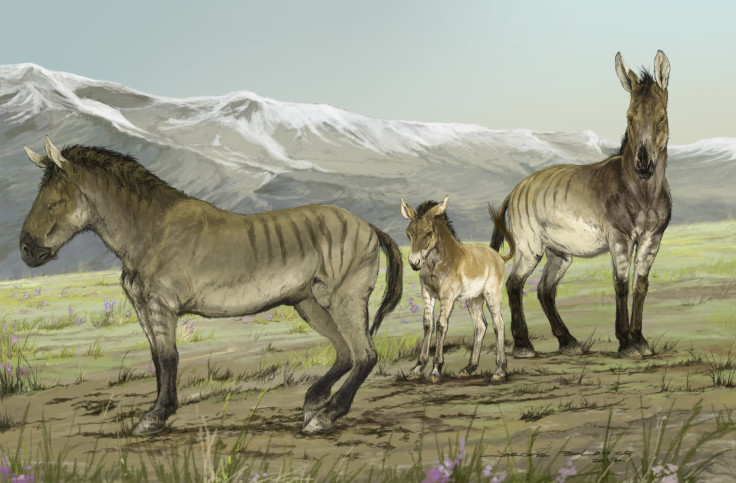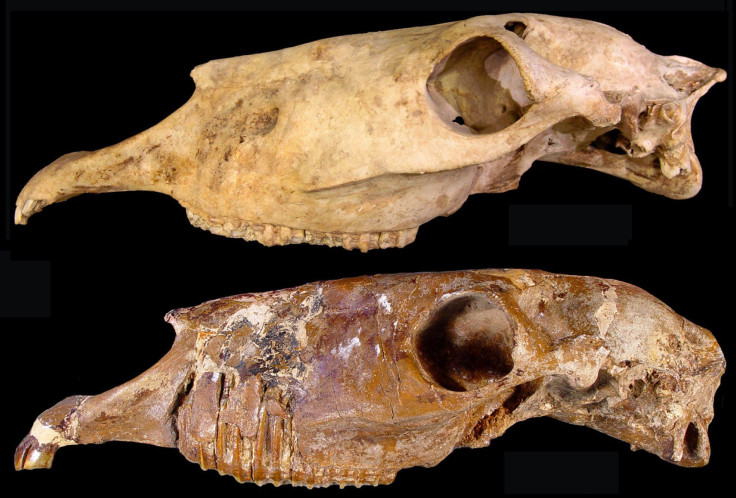DNA Shows These Extinct Horses With Skinny Legs Aren’t Horses At All

Scientists have discovered a new group of extinct horses that lived in North America thousands of years ago.
Bones from the New World stilt-legged horse had already been dug up, but it was not clear how these animals with skinny legs fit in on the family tree of horses, asses and zebras. A new DNA analysis shows that they are unrelated to the creatures in the Equus genus that we know today, after splitting off from their ancestors between roughly 4 million and 6 million years ago to form their own group, according to a study in the journal eLife. The researchers are classifying the mysterious Ice Age horses as being in a new genus called Haringtonhippus.
There is only this one species, H. francisci, within it but the classification might help scientists better understand the evolution of horses over the last few million years.

New World stilt-legged horses previously had been thought to be related to animals like the Asiatic wild ass, also known as an onager, because of traits like their physique. Their fossils have been found throughout North America in places as far south as Nevada and Texas and as far north as Canada’s Yukon Territory. Haringtonhippus would have lived at the same time as its cousins, the ancestors of modern Equus creatures, but did not breed with them, keeping their groups separate until it went extinct perhaps 17,000 years ago.
Equus also became extinct in North America around that time, but other populations survived and evolved into the horses, zebras and asses we see today.
“The evolutionary distance between the extinct stilt-legged horses and all living horses took us by surprise, but it presented us with an exciting opportunity to name a new genus of horse,” senior study author Beth Shapiro said in a statement from UC Santa Cruz.
The new genus Haringtonhippus is the namesake of Richard “Dick” Harington, who was not involved in the DNA analysis but was the first scientist to describe the New World stilt-legged horses a few decades ago.
“The horse family, thanks to its rich and deep fossil record, has been a model system for understanding and teaching evolution,” first study author Peter Heintzman said in the statement. “Now ancient DNA has rewritten the evolutionary history of this iconic group.”
© Copyright IBTimes 2024. All rights reserved.





















